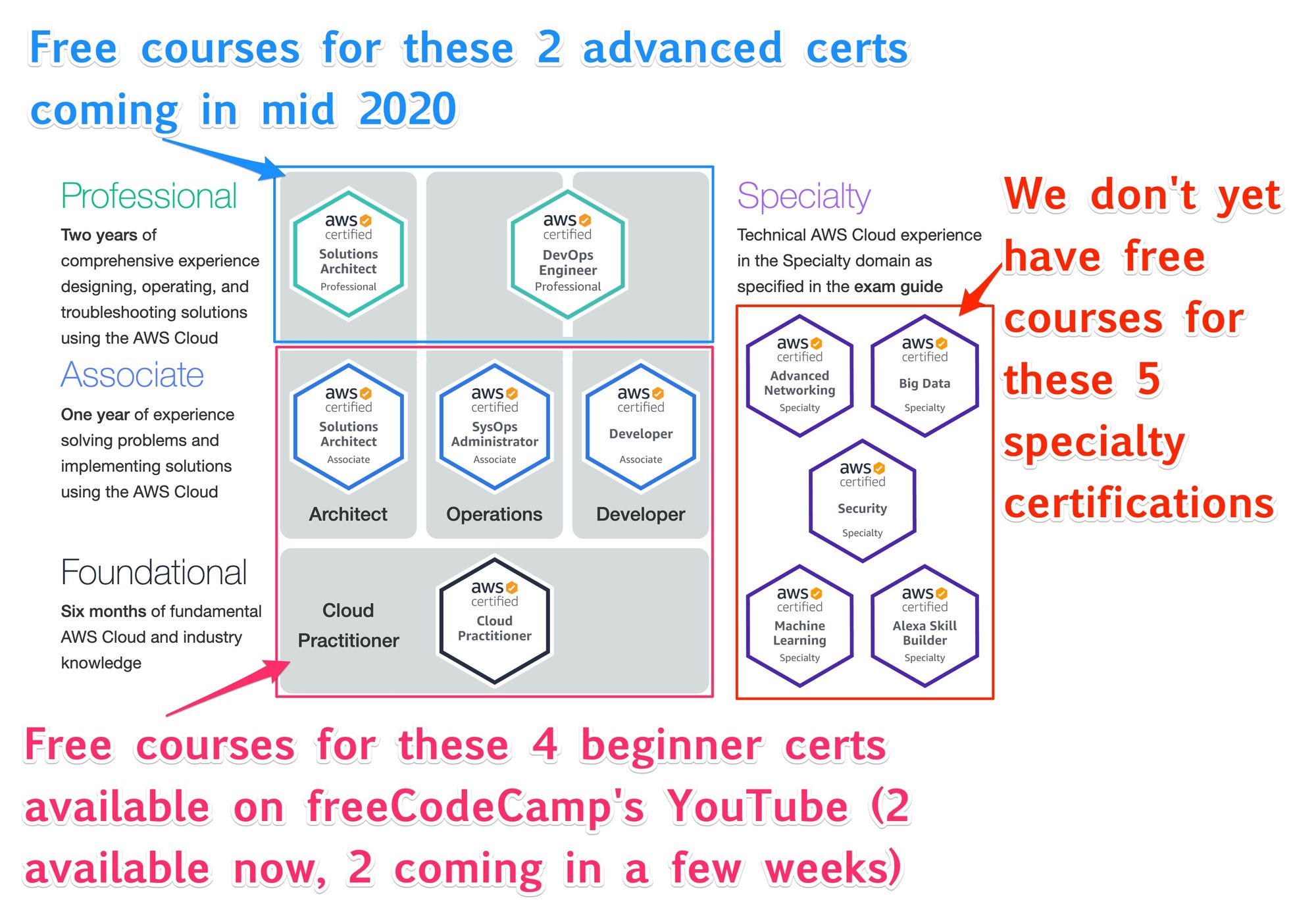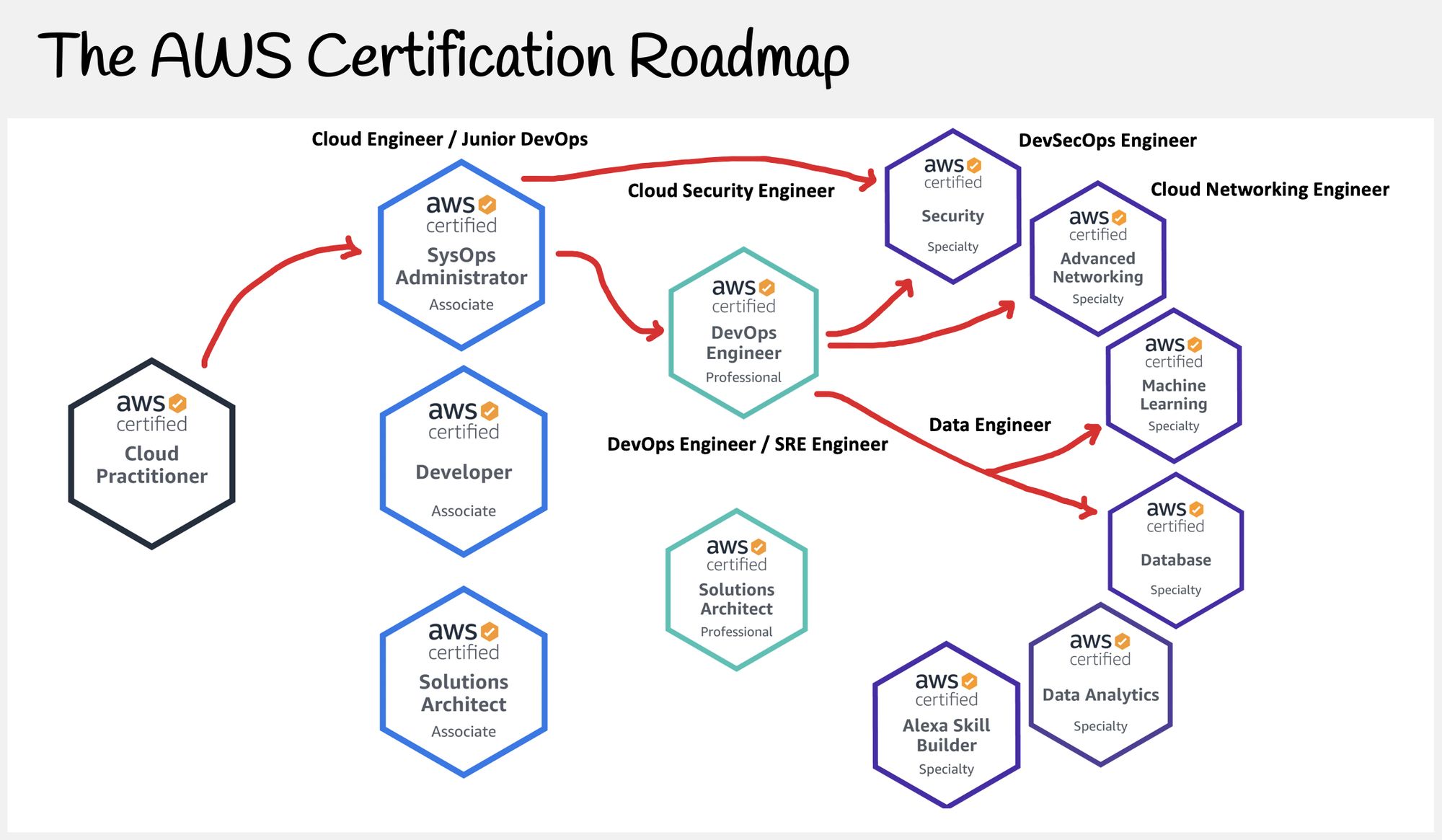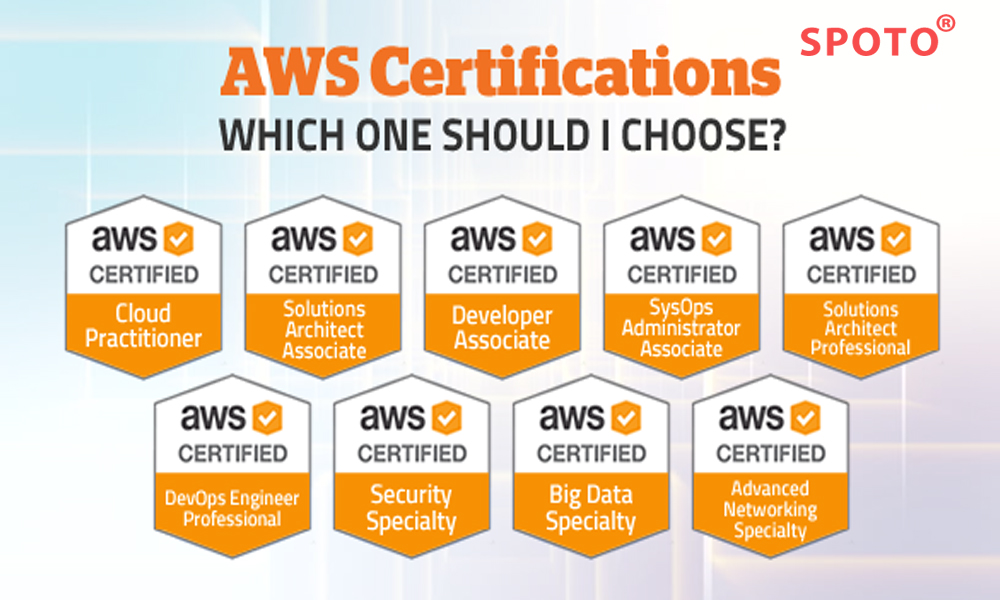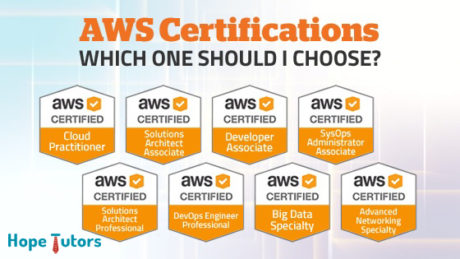Unlocking the Power of AWS Certifications
In the ever-evolving world of cloud computing, AWS (Amazon Web Services) has emerged as a dominant force, revolutionizing the way businesses and individuals approach technology. As the demand for skilled AWS professionals continues to rise, obtaining AWS certifications has become a crucial step in advancing one’s career and demonstrating expertise in this dynamic field. AWS certifications are highly sought-after by employers, as they serve as a reliable indicator of an individual’s proficiency in AWS services, architecture, and best practices. These certifications not only enhance your credibility but also open doors to lucrative job opportunities, higher earning potential, and the chance to work on cutting-edge cloud-based projects.
By earning an AWS certification, you can differentiate yourself from the competition, showcase your commitment to professional development, and position yourself as a valuable asset to organizations seeking to leverage the power of AWS. Whether you’re a seasoned IT professional or aspiring to enter the cloud computing industry, investing in an AWS certification can be a transformative step in your career journey.
Mapping Your AWS Certification Path
Navigating the AWS certification landscape can be a daunting task, but with a clear understanding of the different certification levels and their requirements, you can chart a successful path towards your professional goals. The AWS certification program offers a comprehensive set of credentials, ranging from Foundational to Associate, Professional, and Specialty levels. Each level is designed to assess and validate your expertise in specific areas of AWS services and solutions.
The Foundational-level certifications, such as the AWS Certified Cloud Practitioner, provide a broad understanding of the AWS Cloud and are an excellent starting point for those new to the AWS ecosystem. The Associate-level certifications, including the AWS Certified Solutions Architect, AWS Certified Developer, and AWS Certified SysOps Administrator, delve deeper into specific AWS services and architectural best practices.
As you progress, the Professional-level certifications, such as the AWS Certified Solutions Architect – Professional and AWS Certified DevOps Engineer – Professional, demonstrate your ability to design and implement complex, large-scale AWS-based solutions. Finally, the Specialty-level certifications, such as the AWS Certified Security – Specialty and AWS Certified Machine Learning – Specialty, allow you to showcase your expertise in specialized domains within the AWS Cloud.
When planning your AWS certification path, it’s recommended to start with the Foundational-level certification and then work your way up the ladder, building upon your knowledge and skills. This structured approach ensures that you have a solid foundation before tackling the more advanced certifications, ultimately enhancing your chances of success and demonstrating your comprehensive understanding of the AWS platform.
Preparing for AWS Certification Exams
Embarking on the path to AWS certification requires a well-structured and comprehensive preparation plan. Whether you’re aiming for an entry-level Foundational certification or a more advanced Professional or Specialty credential, the key to success lies in a strategic approach to exam preparation. Begin by thoroughly understanding the exam objectives and the specific skills and knowledge required for the certification you’re pursuing. AWS provides detailed exam guides and sample questions to help you familiarize yourself with the exam format and content.
Next, curate a diverse learning resource library that includes official AWS training materials, online courses, video tutorials, and hands-on labs. Leveraging a combination of these resources will ensure you gain a deep understanding of the AWS services, architecture, and best practices.
Regularly practice with AWS-approved practice tests and sample questions to assess your progress and identify areas that require further attention. These practice exams not only help you become accustomed to the exam format but also provide valuable insights into the types of questions you can expect on the actual exam.
Develop effective time management strategies and practice answering questions within the allotted time frame. This will help you navigate the exam with confidence and ensure you have sufficient time to address all the questions.
Additionally, consider joining online communities, forums, and study groups to connect with other AWS certification aspirants. Engaging in discussions, sharing knowledge, and collaborating on practice questions can significantly enhance your preparation and provide valuable peer support.
By following a structured and comprehensive preparation approach, you’ll be well-equipped to tackle the AWS certification exams and demonstrate your expertise in the AWS Cloud.
Mastering the AWS Certification Exam: Tips and Techniques
Passing an AWS certification exam requires more than just theoretical knowledge; it also demands a strategic approach to exam-taking and effective study habits. By incorporating the following tips and techniques, you can increase your chances of success and demonstrate your expertise in the AWS Cloud. Time Management: Effective time management is crucial during the exam. Familiarize yourself with the exam format and the allotted time for each section. Practice answering questions within the time constraints to develop a rhythm and ensure you can address all the questions.
Question-Answering Strategies: Approach each question methodically, carefully reading the prompt and understanding the core requirement. Eliminate any obviously incorrect options and then logically evaluate the remaining choices to arrive at the most appropriate answer.
Effective Study Habits: Develop a consistent and structured study routine that combines various learning resources, such as official AWS training materials, online courses, and hands-on labs. Regularly review and reinforce your understanding of the exam topics to ensure long-term retention.
Exam Simulation: Practice with AWS-approved practice tests and sample questions to become accustomed to the exam format and the types of questions you may encounter. This will help you identify areas that require further attention and fine-tune your exam-taking strategies.
Stress Management: Recognize that the certification exams can be mentally and emotionally challenging. Employ stress management techniques, such as deep breathing exercises and visualization, to maintain focus and composure during the exam.
By mastering these tips and techniques, you’ll be well-equipped to tackle the AWS certification exams with confidence and demonstrate your expertise in the AWS Cloud.
Maintaining Your AWS Certification: Continuous Learning and Renewal
Earning an AWS certification is a significant accomplishment, but the journey doesn’t end there. To maintain the relevance and value of your certification, it’s crucial to engage in continuous learning and renew your credentials regularly. The AWS Cloud is constantly evolving, with new services, features, and best practices being introduced on a regular basis. To stay ahead of the curve and demonstrate your ongoing expertise, you must commit to a lifelong learning mindset.
Regularly review the AWS certification exam guides and stay informed about the latest updates and changes to the exam content. Participate in AWS-related webinars, workshops, and conferences to gain insights into emerging trends and industry best practices.
Leverage online learning platforms, such as AWS Training and Certification, to access a wealth of educational resources, including video courses, hands-on labs, and virtual training sessions. Continuously expand your knowledge and skills to ensure you’re well-equipped to tackle the challenges of the ever-changing AWS landscape.
As your AWS certifications approach their expiration dates, it’s essential to renew them to maintain your professional standing. The renewal process typically involves demonstrating your continued engagement with the AWS ecosystem, such as by earning additional certifications, contributing to the AWS community, or participating in AWS-related projects.
By embracing continuous learning and renewing your AWS certifications, you’ll not only keep your skills sharp but also signal to potential employers and clients your dedication to professional development and your commitment to staying at the forefront of cloud computing technology.
Leveraging Your AWS Certification: Advancing Your Career
Earning an AWS certification can open up a world of career opportunities, as organizations increasingly seek professionals with demonstrated expertise in cloud computing and the AWS platform. By effectively leveraging your AWS certification, you can position yourself for success and accelerate your career advancement. One of the primary benefits of an AWS certification is the enhanced credibility it brings to your professional profile. Employers highly value candidates who have invested in obtaining industry-recognized certifications, as it signals their commitment to professional development and their ability to work with AWS services and solutions.
AWS-certified professionals are often in high demand, as they possess the specialized skills and knowledge required to design, implement, and manage complex cloud-based architectures. This can lead to lucrative job opportunities, higher earning potential, and the chance to work on cutting-edge projects that leverage the power of the AWS Cloud.
To effectively showcase your AWS certification, ensure that it is prominently displayed on your resume, LinkedIn profile, and any other professional platforms you use. Highlight the specific certification you hold, the skills and knowledge it demonstrates, and the value it brings to your role and the organization.
Additionally, consider actively participating in the AWS community, such as by contributing to online forums, attending AWS-related events, or even becoming an AWS Certified Instructor. This not only helps you stay up-to-date with the latest AWS developments but also enhances your visibility and reputation within the cloud computing industry.
As you progress in your career, continuously evaluate your professional goals and consider pursuing additional AWS certifications that align with your aspirations. Advancing your AWS certification path can open doors to more specialized and senior-level roles, further solidifying your position as a sought-after cloud computing expert.
By leveraging your AWS certification and actively engaging with the AWS ecosystem, you can unlock a world of career opportunities and accelerate your professional growth within the dynamic and rapidly evolving cloud computing landscape.
Choosing the Right AWS Certification for Your Goals
With the diverse range of AWS certifications available, it’s essential to carefully align your career aspirations and current skill set to identify the most suitable certification path. By making an informed decision, you can maximize the impact of your AWS certification and propel your professional development in the desired direction. Begin by assessing your current knowledge and experience in the AWS Cloud. Consider the specific services, architectures, and best practices you are familiar with, as well as the areas where you seek to deepen your expertise. This self-assessment will help you determine the appropriate starting point on the AWS certification ladder.
If you’re new to the AWS ecosystem, the Foundational-level certifications, such as the AWS Certified Cloud Practitioner, are an excellent starting point. These certifications provide a broad understanding of the AWS Cloud, its services, and its core concepts, laying a solid foundation for your future AWS journey.
As you progress, the Associate-level certifications, such as the AWS Certified Solutions Architect, AWS Certified Developer, and AWS Certified SysOps Administrator, allow you to specialize in specific domains within the AWS Cloud. These certifications are highly valued by employers and demonstrate your ability to design, develop, and operate AWS-based solutions.
For experienced AWS professionals seeking to take their careers to the next level, the Professional-level certifications, including the AWS Certified Solutions Architect – Professional and AWS Certified DevOps Engineer – Professional, are the logical next step. These certifications validate your expertise in designing and implementing complex, large-scale AWS architectures and DevOps practices.
Finally, the Specialty-level certifications, such as the AWS Certified Security – Specialty and AWS Certified Machine Learning – Specialty, enable you to showcase your deep knowledge and skills in specialized domains within the AWS Cloud. These certifications are particularly valuable for individuals seeking to differentiate themselves in niche areas of cloud computing.
By carefully aligning your AWS certification path with your career goals and current skill set, you can ensure that your investment in obtaining these credentials translates into tangible professional growth and advancement opportunities.
Maximizing the Value of Your AWS Certification
Earning an AWS certification is a significant accomplishment, but the true value of your credential lies in how you leverage it to its fullest potential. By adopting a strategic approach and actively engaging with the AWS community, you can maximize the impact of your certification and accelerate your professional growth. Networking and Collaboration: Attend AWS-related events, conferences, and meetups to connect with other AWS professionals. These interactions can lead to valuable networking opportunities, knowledge sharing, and potential job prospects. Actively participate in online forums and communities to showcase your expertise and contribute to the broader AWS ecosystem.
Contributing to the AWS Community: Consider becoming an AWS Certified Instructor or a subject matter expert in specific AWS services. By sharing your knowledge and insights with others, you can not only enhance your own understanding but also establish yourself as a thought leader within the AWS community.
Pursuing Advanced Certifications: As you progress in your AWS journey, continuously evaluate your career goals and explore opportunities to obtain additional certifications. Advancing your certification path, such as by earning Professional or Specialty-level credentials, can open doors to more specialized and senior-level roles within the cloud computing industry.
Staying Up-to-Date: Regularly review the AWS certification exam guides and stay informed about the latest updates and changes to the AWS platform. Engage in continuous learning by taking advantage of AWS training resources, online courses, and industry events. Maintaining your knowledge and skills will ensure that your AWS certification remains relevant and valuable.
Showcasing Your Credentials: Prominently display your AWS certification on your resume, LinkedIn profile, and any other professional platforms you use. Highlight the specific certification you hold, the skills and knowledge it demonstrates, and the value it brings to your role and the organization.
By adopting a strategic and proactive approach to leveraging your AWS certification, you can unlock a world of career opportunities, enhance your professional reputation, and position yourself as a sought-after cloud computing expert.







